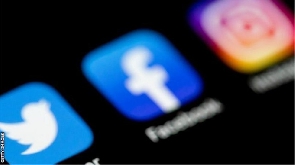 Social media has been an essential part of our everyday lives
Social media has been an essential part of our everyday lives
If you are above 25, you can recall the early days of social media, the days when our favourite platforms were arguably happier, funnier, and everyone seemed to be nicer. Either that or they may just be false memories borne out of nostalgia.
But fast-forward to today's fast-paced digital world, and social media has become an essential part of our daily lives.
Platforms like Facebook, Instagram, and Twitter offer endless entertainment, news, and opportunities to connect with others and share one’s craft.
However, with modern innovations come modern problems; this constant connectivity has a downside.
Social media addiction was, in the mid-2010s, classified as a behavioural addiction affecting millions of people worldwide, and it still continues to.
Thus, it is best to understand what social media addiction is, its causes, effects, and ways to manage this relatively new phenomenon.
What is it?
According to addictioncenter.com, social media addiction is a behavioural addiction characterised by an individual being overly concerned about social media platforms. This is driven by an uncontrollable urge to log on to or use social media and devoting so much time and effort to social media that it impairs other important activities.
Although social media use in itself is non-problematic, a percentage of users become addicted to social networking sites and engage in excessive or compulsive use.
Causes
Social media addiction stems from various factors, including psychological, social, and technological influences. Here are some key causes:
Psychological Factors
People often turn to social media for validation and a sense of belonging. The engagement, including the "likes," comments, and shares on posts, can help produce dopamine (a feel-good chemical in the brain) similar to the effects of addictive substances.
This, in turn, can make individuals crave more interaction and approval.
Social Factors
Peer pressure and the fear of missing out (FOMO) drive people to stay constantly connected.
Seeing one’s friends and acquaintances post about their ‘fantastic’ lives can compel these individuals to share (most times, overshare) their own experiences, leading to excessive use and eventually, addiction.
Technological Factors
Remember the early days of Facebook? You scroll for a while, get to the end of the page, click to get to the next page, and scroll till the end.
But now, social media platforms are designed to keep users engaged. Infinite scrolling, notifications, and personalised content and features are designed to encourage prolonged use, making it difficult to disconnect.
Effects
Many individuals, in a quest for social media likes and attention, have been reported to engage in risky behaviours to create content for likes and attention.
Excessive social media use has been linked to increased levels of anxiety, depression, and stress. Constant comparisons with others can lead to feelings of inadequacy and low self-esteem (Echeburua & de Corral, 2010; Kuss & Griffiths, 2011).
Also, staying up late to check social media can lead to sleep deprivation, affecting overall health.
Spending too much time on social media can distract individuals from their studies or work.
This can result in decreased productivity and poorer academic or job performance.
Additionally, preferring to stay online to interact with people one may never see over real-life relationships can lead to social isolation and weakened bonds with family and friends.
How do you manage this?
Set Time Limits:
Set up specific times and stick to them. Use apps that track and limit screen time as well.
If you have children already using devices, set specific times for social media use and take their devices.
Turn off notifications:
App notifications are designed to drag you back into the app. Turn off non-essential notifications for your apps. This would help reduce the urge to check social media. As the saying goes, “if no be money…..”
Engage in Offline Activities:
In other words, go outside and touch grass! Find hobbies and activities that do not involve screens. Read physical books, go to the gym, go to social events, talk to real human beings, spend time with loved ones, etc.
Seek help:
If social media addiction is severely impacting your life, consider seeking professional help. Therapists and counsellors can provide guidance and support to help overcome addiction.
In all, there's no doubt that social media is a powerful tool. If used properly, it can change lives for the better and help push social movements.
However, take note of the signs of addiction and learn to take proactive steps to manage it.
By understanding the causes, acknowledging the effects, and implementing practical strategies, we can maintain a healthy balance between social media and our real lives.
ID/NOQ
Click here to follow the GhanaWeb Entertainment News WhatsApp channel
See the latest episode of Talkertainment below;